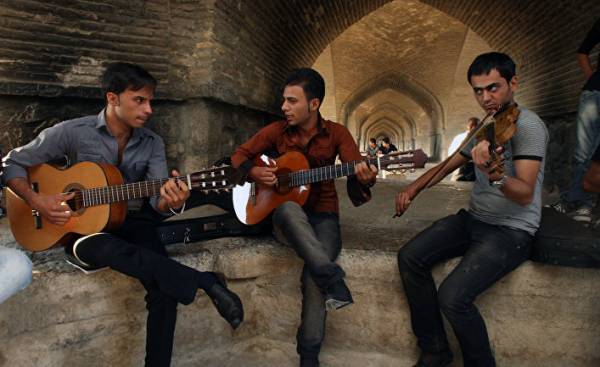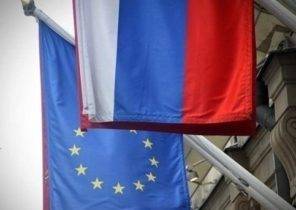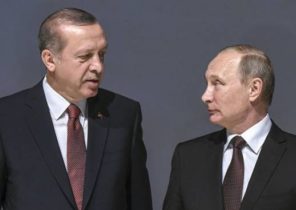
TEHRAN/ISFAHAN — Generation, born and raised in the Islamic Republic of Iran, pushes the boundaries. But the new revolution, they don’t want to.
Sounds like “Shape of You” ed Sheeran. Two women in short skirts with sequins and high heels dancing, laughing and clapping. At the kitchen table clink “arakai”, the local moonshine. In a circle there is a cigarette with “weed”.
This after-party could be anywhere in the world. But this Thursday night we’re at the apartment, located in the rich Northern part of Tehran, and twenty women and men who are under 30, gathered here to get away.
“People drinking, Smoking and sex before marriage. Here you can get all what you want, directly to your home will bring,” explains “Ali Reza” in fluent English.
No one in the room knew of a different Iran than the Islamic Republic. It has been almost 40 years since that day, as a popular uprising, a demand which was freedom, boldly authoritarian and Pro-Western monarchy of Mohammad Reza Pahlavi, the last Shah of Iran.
Those who drink should be punished by lashes
But in the second phase of the revolution seized power, the Islamists. Iran became a theocratic state, partly based on Sharia law. People’s demands for democratization and freedoms have been set aside. In the last 38 years in Iran, where dissent is brutally suppressed, human rights are ignored and women are treated as second-class citizens.
Until 1979 mini-skirts and alcohol in Tehran was something taken for granted. Today those who drink are punished by 80 lashes, and women, in addition to a number of other discriminatory laws, are required always when they are outside, wear covering them from head to foot clothes, they should avoid loud laughter and refrain from Cycling.
But almost four decades, the Islamic Republic are unable to “comb” the generation that never lived in another Iran.
I passed by almost a week as a tourist, familiar with social media, young Iranians seem to be experts in how to maneuver in daily life, defined by regulations and prohibitions. Borders moved constantly.
I was invited on trips and to parties
It started even before arrival. Thanks to guest network Renren, which, like Facebook, is blocked, but you can easily accessed using a special application, we have a number of queries from both women and men. We offer housing, offer to join me for a hike in the mountains, go to cafes, art galleries and parties.
The difference between what you see in official life, and what really happens behind the four walls of the home, great. Satellite antenna — something as taken for granted, like televisions. From the living room follow the news from BBC, CNN and the opposition Manoto channel broadcasting from London. According to the authorities, up to 70% of the population is breaking the law by owning a satellite.
But civil disobedience goes beyond the dwellings.
In Isfahan, the third largest city in the country, we see two girls 12 years old with his mother in tow. Mother in chador, a conservative black outfit that completely covers all the body except the face. Girls go a few yards ahead. The hijab is prescribed by law, but they have baseball caps, plastic visors ago. But one of the caps shiny letters “YOLO” (short for “You Only Live Once”, “you only Live once”). One of the girls turns into something angrily said to her mother.
They do not wear the hijab in protest
In social media the boundaries of the surrounding world is also expanding. “Nazanin” fashionable woman in your 20s and that itself delaysec of jewelry, often use Instagram (which is not blocked). Many own the photos she is without a headscarf.
And in this she is not alone: through the website, activists of the “My Stealthy Freedom” (My hidden freedom) in Facebook, which has over a million followers, women post their own pictures without hijab in protest against the dictatorship of the clergy. The reactionary rulers of Iran from this not happy. Last year, eight models were arrested for sharing their photos of them without hijab in Instagram.
© Hossein Fatemi / Panos PicturesЖенщины dancing at a house party in Tehran
“Nazanin” says that she received warnings from police patrols morals Gasht-e Ershad for lewd behavior. If she’s in town meeting with friends, her colorful shawl, most often pushed back behind the ears.
“I haven’t had any serious problems, but I was warned that “this is my last chance” and that if I don’t get my act together, I can punish,” she says.
According to Amnesty International, approximately 2.9 million women between March 2013 and March 2014 received from the police warning in connection with “indecent clothes”. But the Iranians find new and creative ways to circumvent obstacles. In the new application, Internet users can map to indicate where they saw the Vice squad. And thus to warn other users.
In two weeks the presidential election
However, some say that courage in social media is only a superficial indication that youth are allowed some freedom. Despite the fact that in the four years of the reign of the reformist President Hassan Rouhani, there has been a new foreign policy, it has not led to greater political freedom in the country. On the contrary, the situation with human rights, rather, became worse.
May 19 presidential elections. Will there be re-elected Hasan Rowhani wins, or his main rival, Ibrahim Raisi, a conservative candidate closely associated with the spiritual leader Ayatollah Ali Khamenei, the chances of improving working conditions of media, freedom of speech and respect for human rights is still negligible.
Despite the distrust of the regime we met many young Iranians have a certain, although slight optimism for the future. They hope that the agreement on the nuclear program and the easing of sanctions will contribute to the economic advancement of the country and relations with the rest of the world, and it will give them the opportunity to travel abroad and to pursue their dreams elsewhere, not in Iran.
Evolution, not revolution
At a party in Tehran the time is approaching midnight. “Ali Reza”, like many other children of the Islamic revolution, and blames the parents that they took to the streets to reset the authoritarian regime of the Shah in the late 1970-ies.
He is sure that in Iran there’s a change. But, taught by bitter experience, adds: “This will happen by evolution, not revolution. By the revolution already tried. And we see what it led to.







